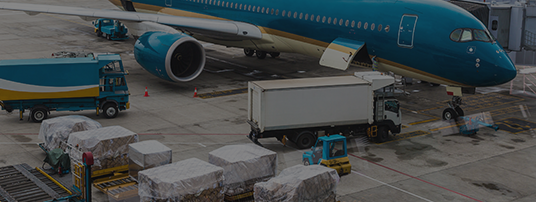When it comes to the intricate realm of aerospace engineering, even the tiniest components play a critical role to ensure the safety and dependability of an aircraft. Aerospace fasteners, including aircraft bolts and aircraft nuts, may seem like insignificant components, but they are of paramount importance in many settings. In this blog, we will delve into the fascinating subject of aerospace fasteners, exploring their types, applications, and the rigorous standards they must meet.
Aerospace fasteners, as the name suggests, are specialized fastening components designed for use in aircraft and spacecraft. These fasteners secure various parts of an aircraft, from its structural components to its interior fittings. They are available in a variety of forms and sizes, each meticulously engineered to withstand extreme conditions during flight. Aerospace fasteners are primarily responsible for holding an aircraft or spacecraft together, and failure is not an option.
Aircraft bolts are one of the most common types of aerospace fasteners. These bolts come in different forms, such as hex head bolts and countersunk bolts, and they serve a crucial role in joining two or more parts of an aircraft together in an assembly. Aircraft bolts are manufactured to exacting standards to ensure they meet the stringent requirements of the aerospace industry. They are also made from high-strength materials like titanium, stainless steel, and alloy steel to withstand the stresses and loads encountered during flight.
Aircraft nuts are another essential component of aerospace fastening systems. These nuts are used in conjunction with bolts to secure parts together, and they are designed to be durable and provide a tight and secure fit. Aerospace-grade nuts, like aircraft bolts, are often made from stainless steel and titanium, which offer exceptional corrosion resistance and strength.
In the aerospace industry, precision is paramount, and even the smallest discrepancy in fastener dimensions can have catastrophic consequences. To address this, aerospace fasteners are manufactured with extreme precision, adhering to strict tolerance requirements. A tight tolerance is necessary to prevent any play or movement that could lead to fatigue or failure. Inadequate fastener performance can compromise aircraft structural integrity, posing a significant safety risk.
Additionally, aerospace fasteners undergo a battery of tests to verify their integrity and quality. These tests include tension tests, torque tests, and vibration tests, among others. A tension test determines the strength of a fastener to ensure it can withstand the loads it will experience during flight, while torque tests evaluate the fastener's ability to maintain a specified level of tension when tightened to a specific torque value. In vibration tests, fasteners are subjected to conditions that simulate the vibration of an airplane, making sure that they are able to withstand these conditions without loosening or failing.
One of the unique challenges faced by aerospace fasteners is the need to balance strength and weight. The design of aircraft requires lightweight materials to improve fuel efficiency and performance, but these materials must also be robust enough to meet the demands of flight. Aerospace engineers must carefully select fasteners that strike the right balance between strength and weight, as excessive weight can reduce an aircraft's efficiency.
In addition to their role in structural integrity, aerospace fasteners are vital for safety. These fasteners secure essential components like engines, landing gear, and control surfaces, and the failure of any of these fasteners could lead to catastrophic accidents. Thus, reliability and quality are paramount in the aerospace industry, and fasteners are rigorously inspected, tested, and tracked throughout their lifespan.
Conclusion
In conclusion, aerospace fasteners are crucial in the aviation industry, playing a critical role to ensure the safety and integrity of aircraft. To achieve safety goals, aerospace engineers carefully select, manufacture, and test these fasteners to meet the demanding standards of the industry. Next time you board an aircraft, take a moment to appreciate the role these unassuming yet essential parts play in keeping you safe.
Here at Aircraft Parts Delivered Today, we invite you to explore our range of offerings at your convenience. We also recommend making the most of our online Request for Quotation (RFQ) service to swiftly and easily obtain quotes for items that capture your interest. Upon receipt and assessment of your completed RFQ form, one of our team members will contact you in 15 minutes or less to provide you with a customized solution for your comparisons. Commence your procurement process today and discover why Aircraft Parts Delivered Today remains the preferred choice for part fulfillment by numerous customers.
Posted on December 1, 2023 patricia snyder

 The only independent
The only independent



“We Proudly Support Intrepid Fallen Heroes Fund that serves United States Military Personal experiencing the Invisible Wounds of War : Traumatic Brain Injury (TBI) and Post Traumatic Stress (PTS). Please visit website (www.fallenheroesfund.org) and help in their valiant effort”.
We Hope that You Will Visit Us Again the Next Time You Need Aircraft Parts and Make Us Your Strategic Purchasing Partner.
Request for Quote